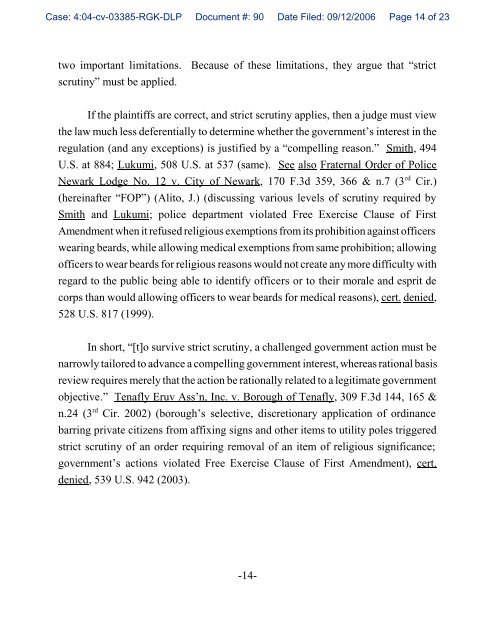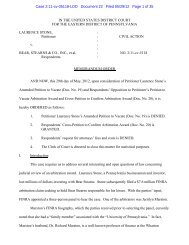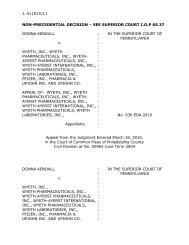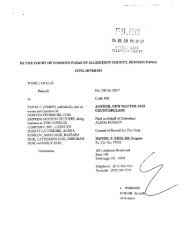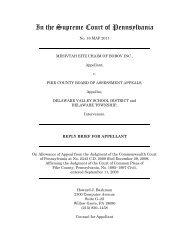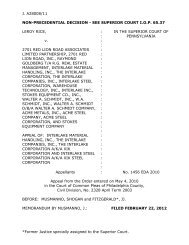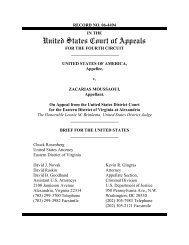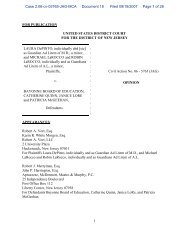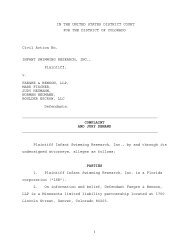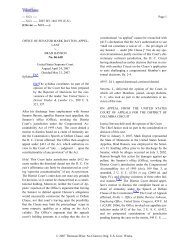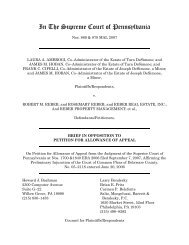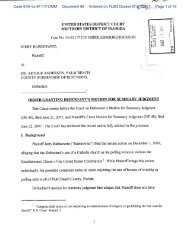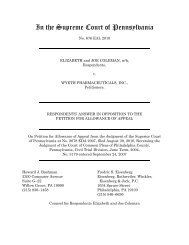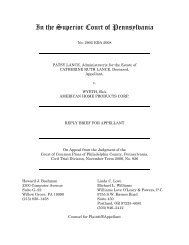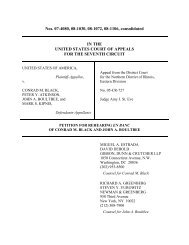Spiering v. Heineman - How Appealing - Law.com
Spiering v. Heineman - How Appealing - Law.com
Spiering v. Heineman - How Appealing - Law.com
Create successful ePaper yourself
Turn your PDF publications into a flip-book with our unique Google optimized e-Paper software.
Case: 4:04-cv-03385-RGK-DLP Document #: 90 Date Filed: 09/12/2006 Page 14 of 23<br />
two important limitations. Because of these limitations, they argue that “strict<br />
scrutiny” must be applied.<br />
If the plaintiffs are correct, and strict scrutiny applies, then a judge must view<br />
the law much less deferentially to determine whether the government’s interest in the<br />
regulation (and any exceptions) is justified by a “<strong>com</strong>pelling reason.” Smith, 494<br />
U.S. at 884; Lukumi, 508 U.S. at 537 (same). See also Fraternal Order of Police<br />
Newark Lodge No. 12 v. City of Newark, 170 F.3d 359, 366 & n.7 (3 rd Cir.)<br />
(hereinafter “FOP”) (Alito, J.) (discussing various levels of scrutiny required by<br />
Smith and Lukumi; police department violated Free Exercise Clause of First<br />
Amendment when it refused religious exemptions from its prohibition against officers<br />
wearing beards, while allowing medical exemptions from same prohibition; allowing<br />
officers to wear beards for religious reasons would not create any more difficulty with<br />
regard to the public being able to identify officers or to their morale and esprit de<br />
corps than would allowing officers to wear beards for medical reasons), cert. denied,<br />
528 U.S. 817 (1999).<br />
In short, “[t]o survive strict scrutiny, a challenged government action must be<br />
narrowly tailored to advance a <strong>com</strong>pelling government interest, whereas rational basis<br />
review requires merely that the action be rationally related to a legitimate government<br />
objective.” Tenafly Eruv Ass’n, Inc. v. Borough of Tenafly, 309 F.3d 144, 165 &<br />
n.24 (3 rd Cir. 2002) (borough’s selective, discretionary application of ordinance<br />
barring private citizens from affixing signs and other items to utility poles triggered<br />
strict scrutiny of an order requiring removal of an item of religious significance;<br />
government’s actions violated Free Exercise Clause of First Amendment), cert.<br />
denied, 539 U.S. 942 (2003).<br />
-14


